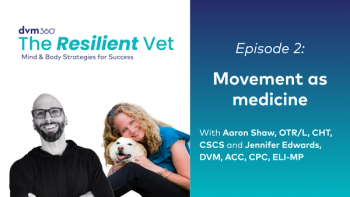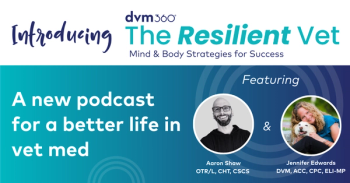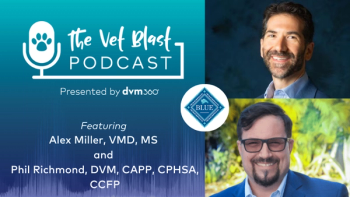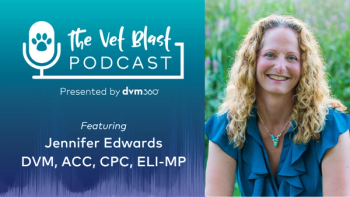
An ounce of motivation worth a pound of cure
Kansas City -- Popular pet-book author, columnist and TV personality Dr. Marty Becker urged veterinarians at CVC Kansas City to rekindle their love with the profession and the animals they have taken an oath to heal.
Kansas City -- Popular pet-book author, columnist and TV personality Dr. Marty Becker urged veterinarians at CVC Kansas City to rekindle their love with the profession and the animals they have taken an oath to heal.
Kansas City, Mo.
-- In a speech delivered at CVC in Kansas City Aug. 29, popular pet-book author, columnist, and TV personality Dr. Marty Becker urged veterinarians to renew themselves and remember what inspired them to work with animals. He also challenged them to blend business and medicine and ensure that veterinary care is available both to the rich and the poor.
“If you find your attention has moved from diagnosis to dollars, that you’re spending more time in business seminars than in wet labs, this is time for renewal,” Becker says.
“This is the time to let the bottom line take care of itself and get back to the garden. You don’t have to plant another seed, you just need 'to repot yourself' and bloom.”
Becker offered inspirational stories of well-known doctors like rehabilitation guru Dr. Robin Downing, Dr. Scott Campbell of Banfield, The Pet Hospital, and long-time speaker and consultant Dr.Tom Catanzaro as examples of how love for the profession blossoms.
“Dr. Downing remembers that by the age of 10 she knew she had what she calls ‘a gift’ with animals,” Becker says.
Campbell's father was his small town’s only doctor. “Scott learned the responsibility of late-night emergencies long before he set foot in veterinary school,” Becker says.
Catanzaro came to veterinary medicine later in life after helping a veterinarian treat a colt who had been “lead trained” while tied to the back of a pickup. It was an epiphany for Catanzaro, and he knew “this is what he really wanted to do.”
Becker opened his speech with other anecdotes: a doctor who works 80 hours a week yet sneaks into his office to play with the computers, a Detroit veterinarian who wears his softball uniform under his scrubs to guarantee he will be ready for the game, and another veterinarian who practices in a poor neighborhood in Cleveland with a “tough guy” client who has a hard time paying his bill but brings in bananas to show his appreciation for the veterinary team.
“You have your own stories. Take a moment and affix the story in the front of your mind,” Becker says. “What you are seeing in your mind’s eye is the reason you came into this ... profession.
"Repeat it like a mantra. Turn it into a sentence. Write it on the back of your business card, or hang it on your wall between your mission statement and your diploma.”
The importance of pets for veterinarians’ and pet owners’ will never go away, he says.
His fear is that increasingly expensive veterinary care may hurt those who are most in need of pet companionship.
“[This] may not be comfortable for everyone in this room to hear,” Becker says. “But some thinkers in our profession believe we’ve raised prices so high and introduced such specialized and expensive medicine that we are in danger of only serving the elite in society. With what we know about the healing power of pets, can we let this happen?”
Becker did acknowledge that the recession affects everyone and believes it represents a sea change for not just veterinarians, but all Americans. “I think the time is here for us to prepare for the ‘reality of a new frugality’ in America.”
Becker offered these suggestions to help:1. Meet or beat Internet prices on shopped items.
2. See pets twice a year to spread out the cost of diagnosis, treatment and prevention.
3. Embrace pet insurance and other forms of third-party payment systems.
4. Develop fee schedules for work by veterinarians and work by veterinary technicians and assistants.
Veterinarians can have “financial success and emotional wealth,” he adds.
“If we wanted to be financially wealthy, we’d be doing cosmetic dentistry, not cleaning out anal glands,” he jokes. “But when I think about being an MD versus a DVM, I ask myself, ‘Would I rather palpate a human or a cow?’”
Newsletter
From exam room tips to practice management insights, get trusted veterinary news delivered straight to your inbox—subscribe to dvm360.






